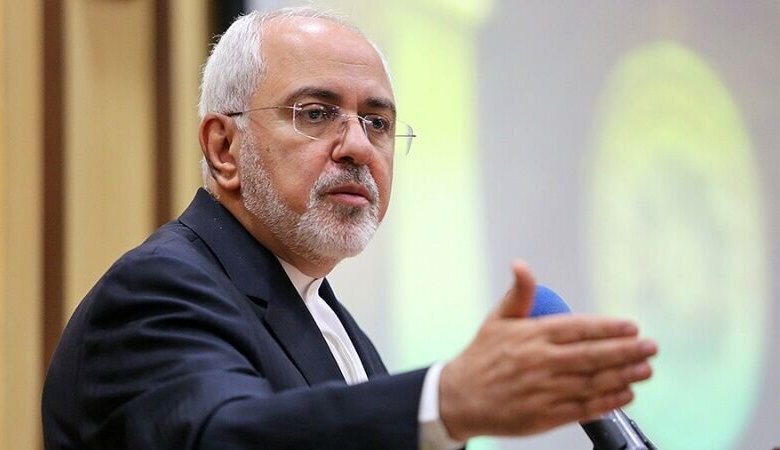The U.S. is addicted to sanctions, says Zarif

TEHRAN — Washington’s hostile policy of imposing sanctions is indicative of its “reckless addiction”, Foreign Minister Mohammad Javad Zarif has said.
“The US' approach to sanctions betrays a pathological and reckless addiction—a condition that renders no bounds or boundary to what the US may or may not do,” Zarif tweeted on Sunday.
“And this addictive behavior affects friends and foes alike, unless collectively pushed back,” he added.
The tweet by Zarif came after U.S. lawmakers on Tuesday approved sanctions on companies and governments working on the Nord Stream 2 pipeline that will link Germany with Russian gas.
Companies providing services such as pipe-laying are being targeted, as Washington tries to halt the completion of the €9.6 billion pipeline, which would transport gas under the Baltic Sea.
The sanctions, which overwhelmingly passed in the House last week, are expected to be signed into force as part of a defense spending bill by U.S. President Donald Trump later this week.
Germany and Russia reacted angrily to sanctions. Germany accused Washington of interfering in its internal affairs.
According to Reuters, Germany’s Finance Minister and Vice Chancellor, Olaf Scholz, said Berlin “firmly rejects” U.S. legislation imposing sanctions on firms laying the Nord Stream 2 gas pipeline from Russia to Europe.
“Such sanctions are a serious interference in the internal affairs of Germany and Europe and their sovereignty. We firmly reject this,” Scholz told German broadcaster ARD in comments released on Saturday.
Foreign Minister Heiko Maas also told the U.S. to ‘mind its own business’
“European energy policy is decided in Europe, not in the US,” Maas said on Twitter.
“We reject external interference,” he said.
The U.S. has adopted the policy of sanctions on any entity, company or country that it is not happy with.
Washington’s illegal sanctions against Iran under the “maximum pressure” policy has been described as economic terrorism. They are impacting the daily lives of millions of ordinary people in Iran.
Speaking at a UN General Assembly meeting in New York on Friday, Takht-Ravanchi described the United States’ sanctions as illegitimate, immoral, inhumane and cruel.
“What the U.S. sanctions are intended to do is ‘collective punishment’ of the general public, which is prohibited even in armed conflicts,” he said.
He said sanctions are “targeting the most vulnerable groups of ordinary people in order to create discontent within the society.”
Washington withdrew from the internationally-endorsed nuclear deal with Iran on May 8, 2018, reimposed the toughest-ever sanctions against the country and started a plan to zero down Tehran’s oil sales.
Tehran has described the U.S. sanctions as “economic war” and “economic terrorism”.
It also says sanctions on the central bank will prevent it to buy food and medicine.
Foreign Minister Zarif said last month that the United States’ sanctions and economic war on Iran have targeted the ordinary people’s health and livelihood.
“There was a time when such warfare was used to simply limit the activities of some countries. However, new warfare of the United States and what Trump has called the ‘economic war’ have targeted the ordinary people’s livelihood and health,” the chief diplomat lamented.
Earlier this month, Iranian Health Minister Saeed Namaki said the United States lies when it says pharmaceuticals and medical equipment are not subject to its sanctions list on Iran.
Namaki has also said the U.S. is exerting pressure on all pharmaceutical companies to stop the sale of medicine to Iran.
“They have put pressure on all our financial transactions regarding medicinal drugs and are exerting pressure on all pharmaceutical companies to stop the sale of medicines to us,” the health minister regretted.
MH/PA
Leave a Comment